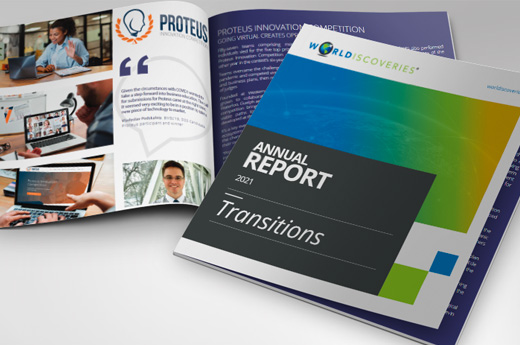Cambridge Brain Sciences now a leading provider of web-based cognitive function assessments
Adrian Owen never used to think about commercializing his electronic cognitive assessments, which he would share widely with fellow researchers upon request.
Before the Internet, he would ship the tests on floppy disks to researchers around the globe who wanted accurate, quantified and scientifically validated measures of cognition.
Now, the software based assessments that originated from Owen’s graduate school research projects in Britain, and developed through his work as a professor, have grown into a Canadian tech company that employs dozens of software developers, business development representatives and account managers.

The Web-based tests, which measure brain function such as memory, reasoning and concentration, are used by healthcare practitioners to accurately assess individuals as it relates to mental health conditions, brain injuries, healthy aging as well as neurodegenerative diseases such as Parkinson’s, Huntington’s, Alzheimer’s and ALS.
The platform is closely linked with BrainsCAN, Western’s campus-wide neuroscience research initiative, which focuses on these various brain diseases and disorders. Through BrainsCAN, lab measures validated through neuroimaging and other approaches are delivered to target audiences via the Cambridge Brain Sciences platform.
It wasn’t until Owen’s arrival at Western as a Canada Excellence Research Chair in 2010 that the wheels of innovation and commercialization started to turn for him. Part of the CERC program’s mandate is to promote Canada’s global competitiveness in research, economics and commercialization.
Owen began to connect with Western’s innovation and entrepreneurship ecosystem, including WORLDiscoveries, the technology transfer and business development office for London’s research institutions. WD provided business strategy and mentoring on forming a startup, and this led to the formation of Cambridge Brain Sciences, which has grown to be a leading provider for the assessment of cognitive function.
Marc Lipton, co-founder and CEO of Cambridge Brain Sciences, had years of experience in venture capital, private equity and entrepreneurship. Lipton was drawn to CBS because of his own experience having had neurosurgery in 1999 and having older family members who experienced neurodegenerative disease. He believed he could take the fledgling startup to the next level.
“What’s unique and valuable about the CBS platform is that it quantifies the assessment of brain function and can be done so remotely,” noted Lipton, “complementing the qualitative assessments and judgement of healthcare practitioners and reducing reliance on traditional paper and pen tests that are typically administered in-person.”
The company’s Web application holds a database of more than 12 million assessment tasks, allowing researchers and clinicians to benchmark patients’ cognitive performance against massive quantifiable datasets. The platform is backed by more than 25 years of research and 300 published scientific articles, giving it an edge over competitors.
In its early years, the company mainly saw interest from researchers wanting to use its large database, or a more niche market of “neuro-hackers” seeking to improve their cognitive performance.
Lipton saw greater potential in forming partnerships with U.S.-based health-care providers as well as companies offering mental-health tools in corporate wellness programs.
The company was starting to see marked interest in its offerings prior to the pandemic. Growth accelerated in 2018 as the company formed partnerships with U.S.-based health-care providers.
Demand has soared even more now that the pandemic has forced clinicians and researchers to take their work online.
Owen is currently using the platform to research the impact of COVID-19 on cognitive function of people who have been infected and since recovered.
“Studies like these would not be possible without the system, as it is all Web-based, hosted on cloud servers, can send out reminder emails, and has an easy-to-use interface for participants to complete the tests,” Owen said.
As well as filling a need to help psychologists and neurologists carry out their work, the application is helping to measure the impacts of COVID-19 itself on the brain.
“The data does show that people who have tested positive for COVID have long-term cognitive deficits,” Owen said. “We have heard patients mention brain fog, but now we can actually quantify what that means.”
According to the data collected, COVID patients’ short-term memory is not affected, but their reasoning and problem-solving capabilities have been hampered by the virus. They may struggle to think quickly, taking longer to make decisions or resolve issues. The severity and duration of the infection also affect its impact on cognitive functions.
The platform can help with the flood of mental-health cases arising from the pandemic and its safety protocols, as well as being a tool for neurologists to swiftly diagnose cognitive decline in an aging population, Owen said: “There are not enough psychologists and neurologists to satisfy the need. If clinicians can use a 15-minute online test and get an answer for their patient on their memory or cognitive function they can efficiently triage them and direct them to the appropriate treatment.”
Cambridge Brain Sciences is expecting to grow significantly over the next several years by continuing to seize on rapidly growing markets in the U.S., as well as Canada, Europe and Asia. It recently received a substantial investment from an existing investor and strategic partner to fund this growth.
Lipton said the goal is to become the leader in cognitive assessment platforms, and continue to integrate other tools and resources for clinicians, especially in the mental-health sphere. Owen will give a talk about his most recent research, COVID-19’s impact on cognitive abilities, next month at the Innovation Ambassadors Showcase: COVID-19’s Impact on the Innovation Ecosystem. The event includes Owen’s keynote presentation followed by panel discussions from researchers and entrepreneurial alumni across Western about how they pivoted during the pandemic.
This article appeared in Western News.


